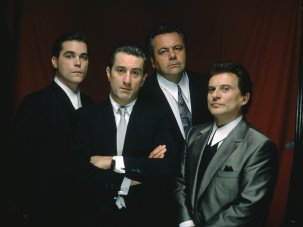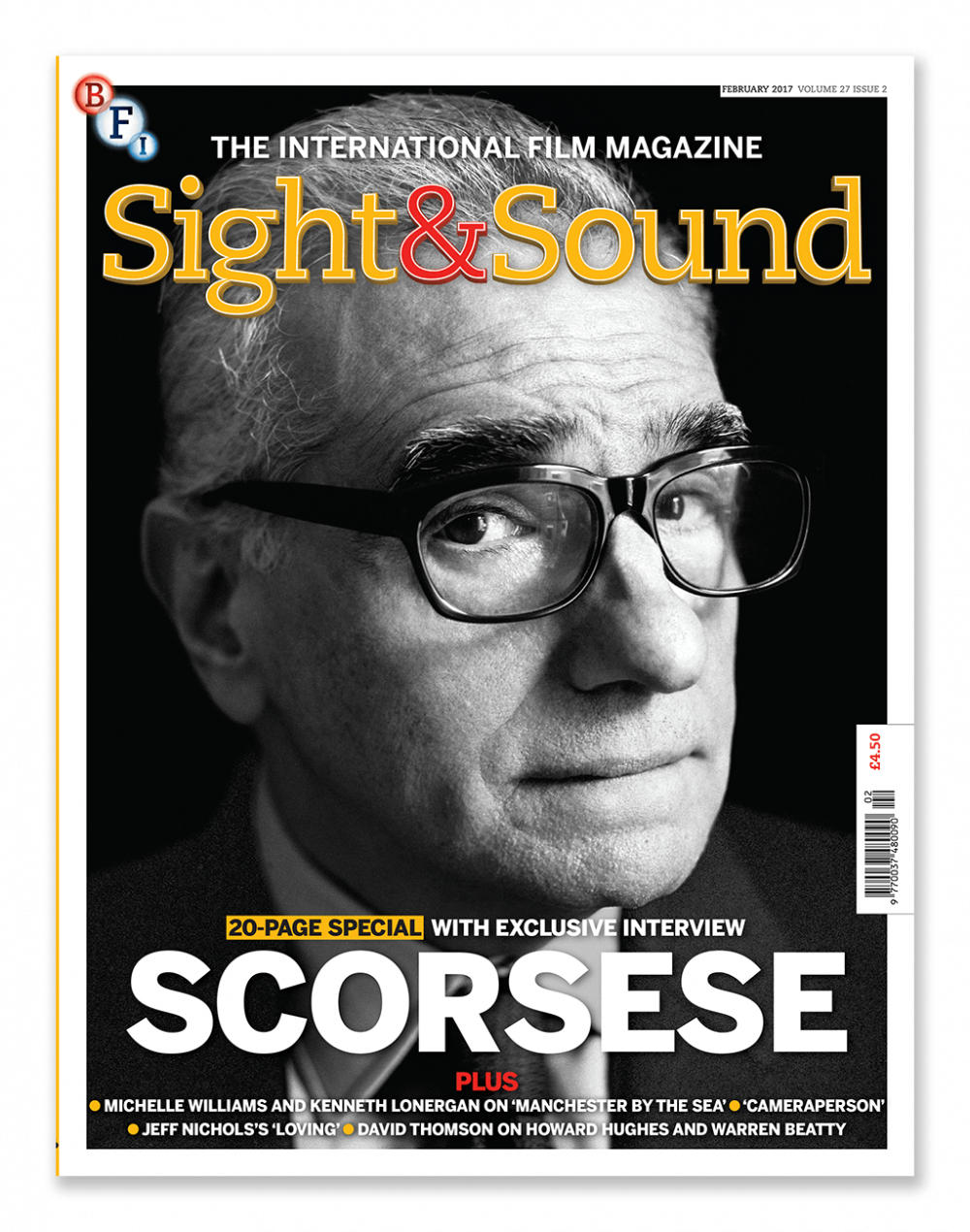
With Martin Scorsese’s long-cherished passion project Silence finally out on the big screen, a two-month retrospective celebration now underway at BFI Southbank and a 40th-anniversary re-release of Taxi Driver around the corner, what better time to unveil a very special Scorsese issue? Across 20 pages, the director talks at length with Philip Horne about the influence of Catholic faith and Japanese cinema on his new film; Brigitte Lacombe photographs the director on set; Nick James presents five case studies in Scorseseian expressionist abstraction; and Ian Christie traces Scorsese’s rising authority as an advocate of cinematic history, preservation and education.
Posted to subscribers and available digitally 6 January
→ Buy a print copy
→ Access the digital edition
→
On UK newsstands 10 January
Also this month, we talk to Michelle Williams and Kenneth Lonergan about the haunting Manchester by the Sea, Juan Antonio Bayona about his new grief fantasia A Monster Calls and Jeff Nichols about his interracial period drama Loving. Sophie Mayer unpacks one of the year’s best documentaries, Kirsten Johnson’s Cameraperson, and David Thomson considers the ever-strange figure of Howard Hughes in the context of Warren Beatty’s new romcom Rules Don’t Apply.
Features
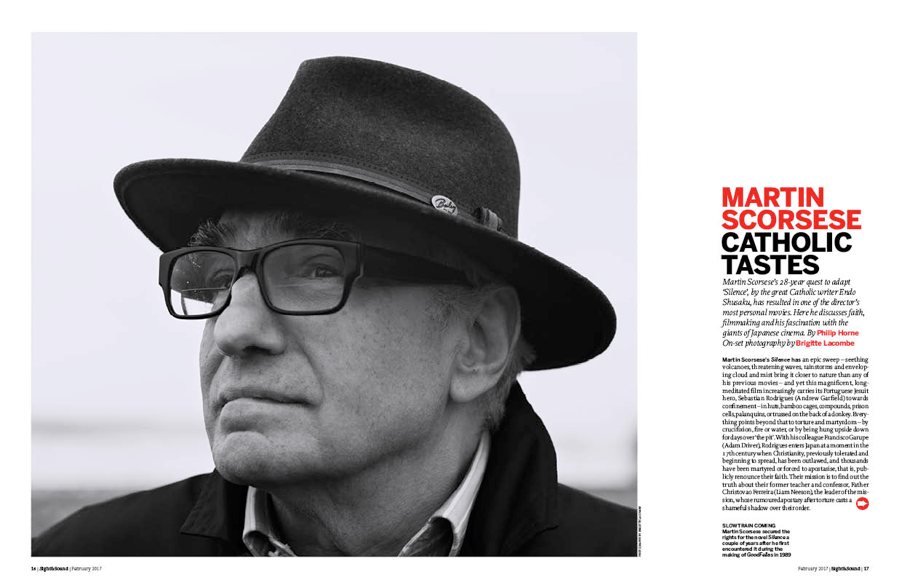
Martin Scorsese: Catholic Tastes
Martin Scorsese’s 28-year quest to adapt Silence, by the great Catholic writer Endo Shusaku, has resulted in one of the director’s most personal movies. Here he discusses faith, filmmaking and his fascination with the giants of Japanese cinema. By Philip Horne, with on-set photography by Brigitte Lacombe.
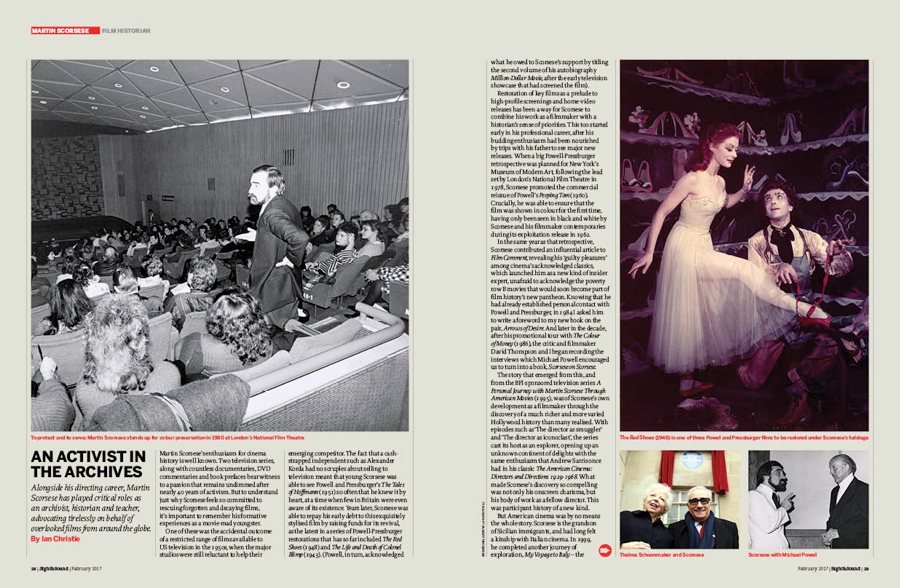
An Activist in the Archives
Alongside his directing career, Martin Scorsese has played critical roles as an archivist, historian and teacher, advocating tirelessly on behalf of overlooked films from around the globe. By Ian Christie.
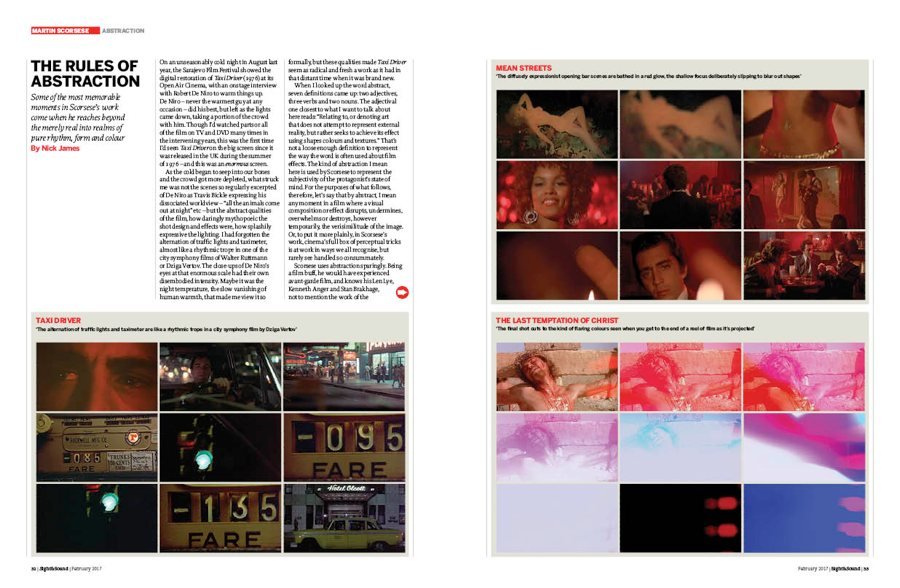
The Rules of Abstraction
Some of the most memorable moments in Scorsese’s work come when he reaches beyond the merely real into realms of pure rhythm, form and colour. By Nick James.
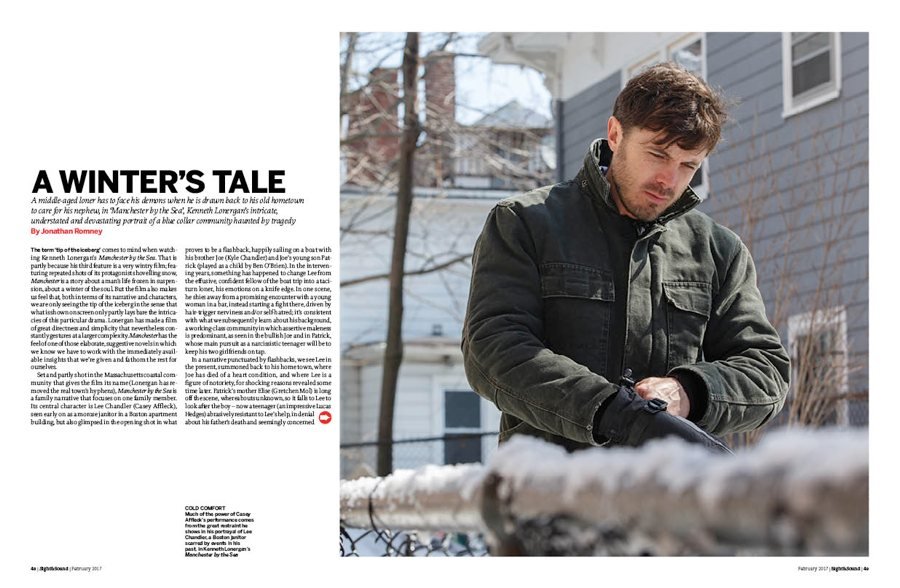
A Winter’s Tale
A middle-aged loner has to face his demons when he is drawn back to his old hometown to care for his nephew, in Manchester by the Sea, Kenneth Lonergan’s intricate, understated and devastating portrait of a blue collar community haunted by tragedy. By Jonathan Romney.
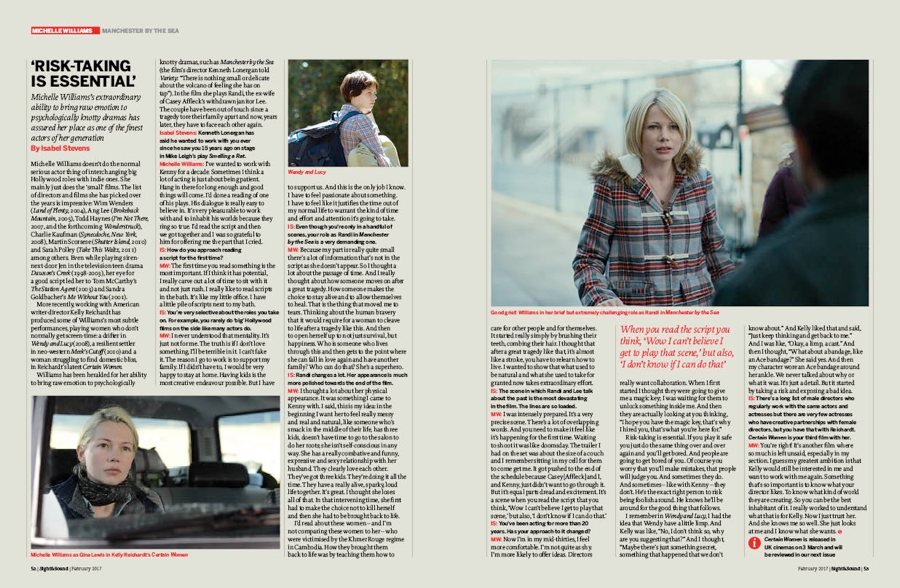
Michelle Williams’s extraordinary ability to bring raw emotion to psychologically knotty dramas has assured her place as one of the finest actors of her generation. By Isabel Stevens.
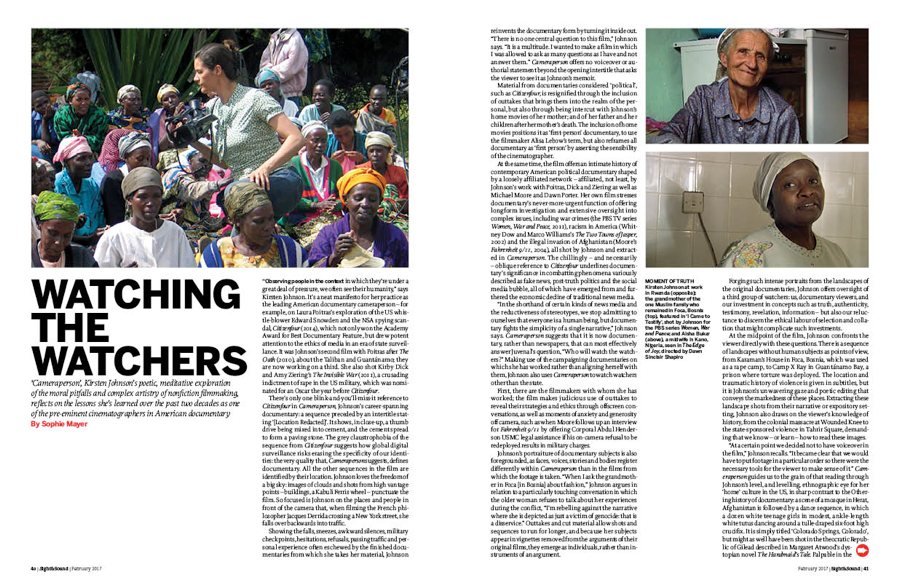
Watching the Watchers
Cameraperson, Kirsten Johnson’s poetic, meditative exploration of the moral pitfalls and complex artistry of nonfiction filmmaking, reflects on the lessons she’s learned over the past two decades as one of the pre-eminent cinematographers in American documentary. By Sophie Mayer.
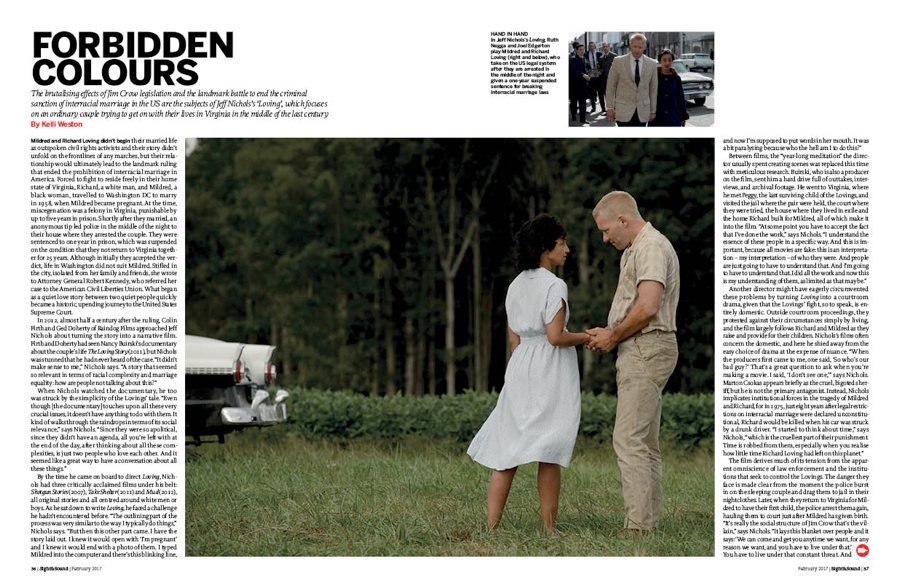
Forbidden Colours
The brutalising effects of Jim Crow legislation and the landmark battle to end the criminal sanction of interracial marriage in the US are the subjects of Jeff Nichols’s Loving, which focuses on an ordinary couple trying to get on with their lives in Virginia in the middle of the last century. By Kelli Weston.
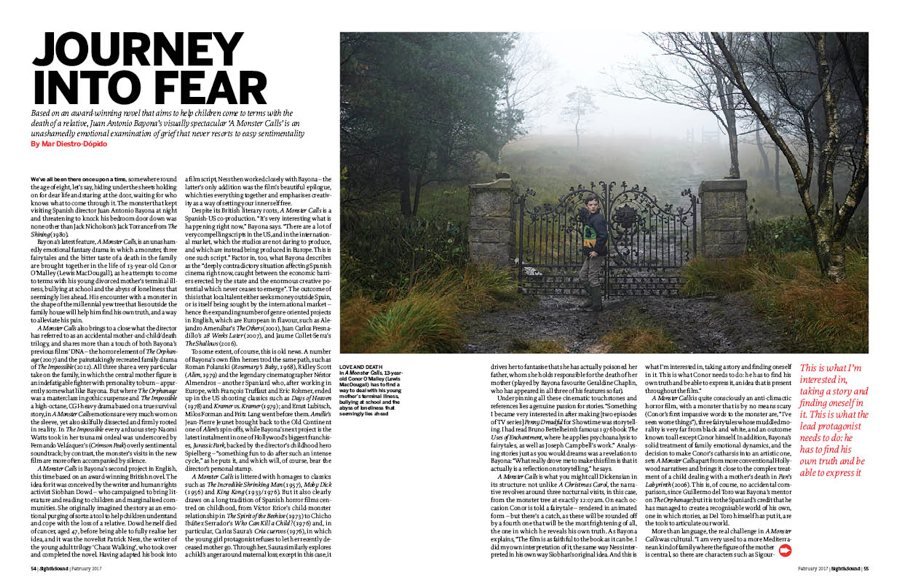
Journey into Fear
Based on an award-winning novel that aims to help children come to terms with the death of a relative, Juan Antonio Bayona’s visually spectacular A Monster Calls is an unashamedly emotional examination of grief that never resorts to easy sentimentality. By Mar Diestro-Dópido.
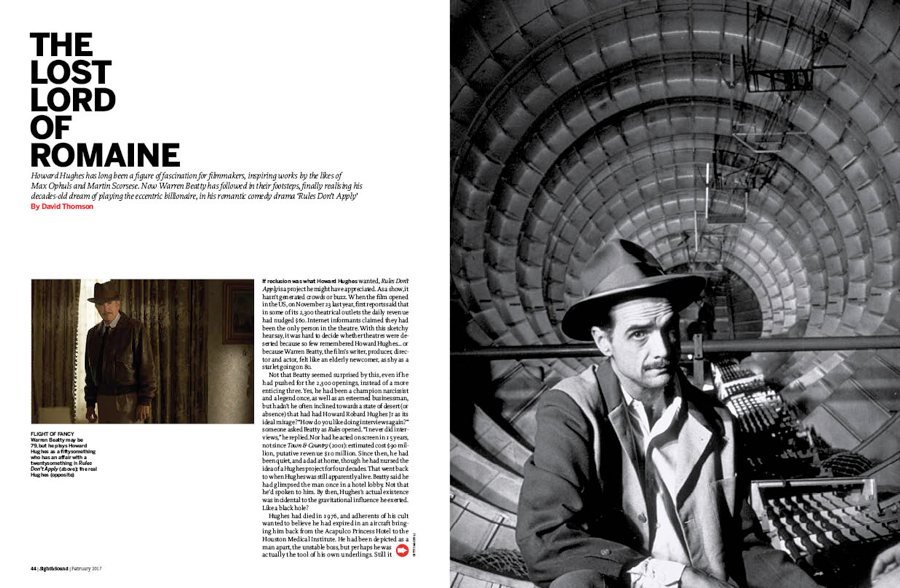
The Lost Lord of Romaine
Howard Hughes has long been a figure of fascination for filmmakers, inspiring works by the likes of Max Ophuls and Martin Scorsese. Now Warren Beatty has followed in their footsteps, finally realising his decades-old dream of playing the eccentric billionaire, in his romantic comedy drama Rules Don’t Apply. By David Thomson.
Regulars
Editorial
Martin Scorsese and Late Style
Rushes
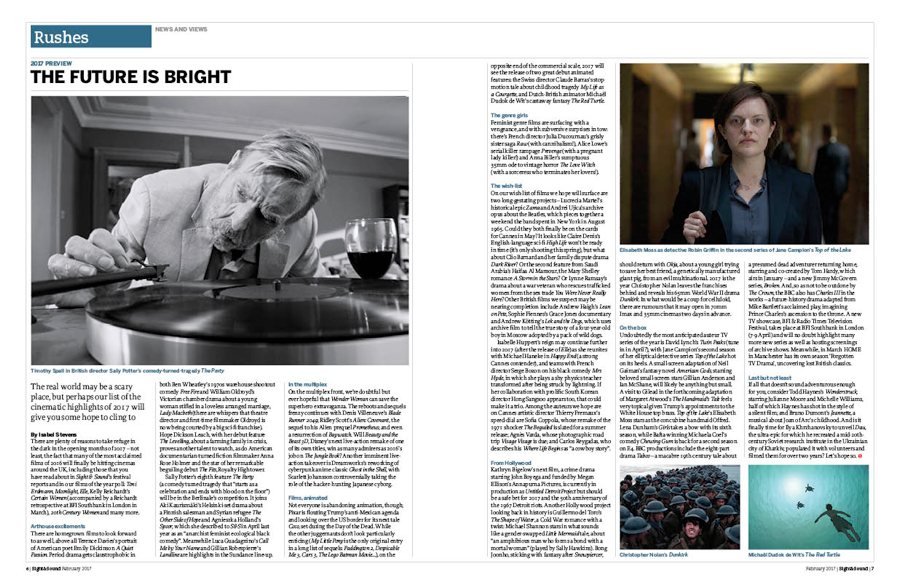
Our Rushes section
2017 preview: The future is bright
The real world may be a scary place, but perhaps our list of the cinematic highlights of 2017 will give you some hope to cling to. By Isabel Stevens.
Object lesson: Lifting the veil
A veil represents both the purity of the chaste bride and the promise of her sexuality – and is a symbol that has always been ripe for subversion. By Hannah McGill.
Festival: There ain’t nothin’ to it
A strong silent cinema strand at Bristol’s Slapstick Festival showcases the enduring appeal of the convention-busting flapper. By Pamela Hutchinson.
Rediscovery: Broadcast news
A recently discovered scrapbook tells the intriguing tale of the rise and fall of the Jacey cinema chain, purveyor of newsreels and sex films. By Ian Francis.
Dispatches: 17 for ’17
Not everything’s perfect in cinema, so as we survey the year ahead, it’s time to dream up a list of all the ways we could make it even better. By Mark Cousins.
The Industry
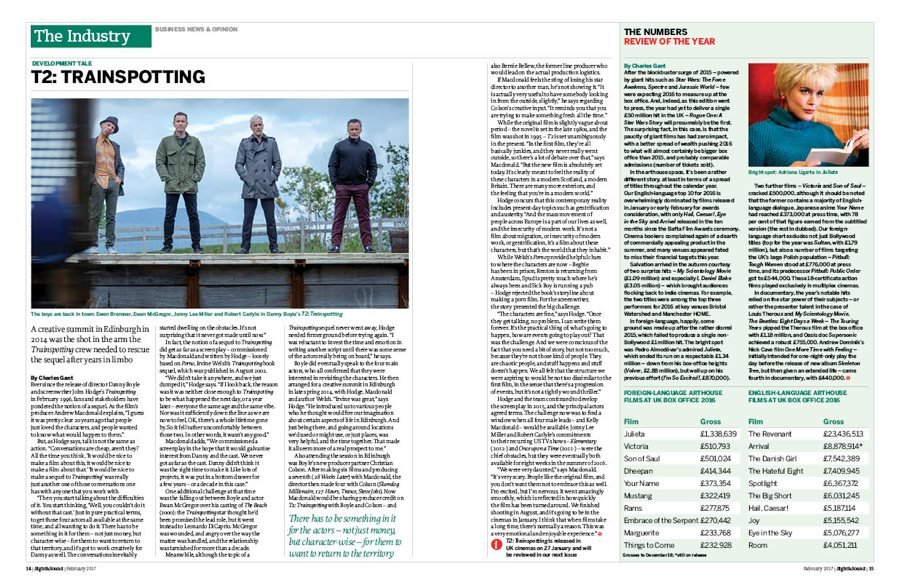
Our Industry section
Development tale: T2: Trainspotting
A creative summit in Edinburgh in 2014 was the shot in the arm the Trainspotting crew needed to rescue the sequel after years in limbo. By Charles Gant.
The numbers
Review of the year and English- and foreign-language arthouse at the UK box office 2016. By Charles Gant.
Wide Angle
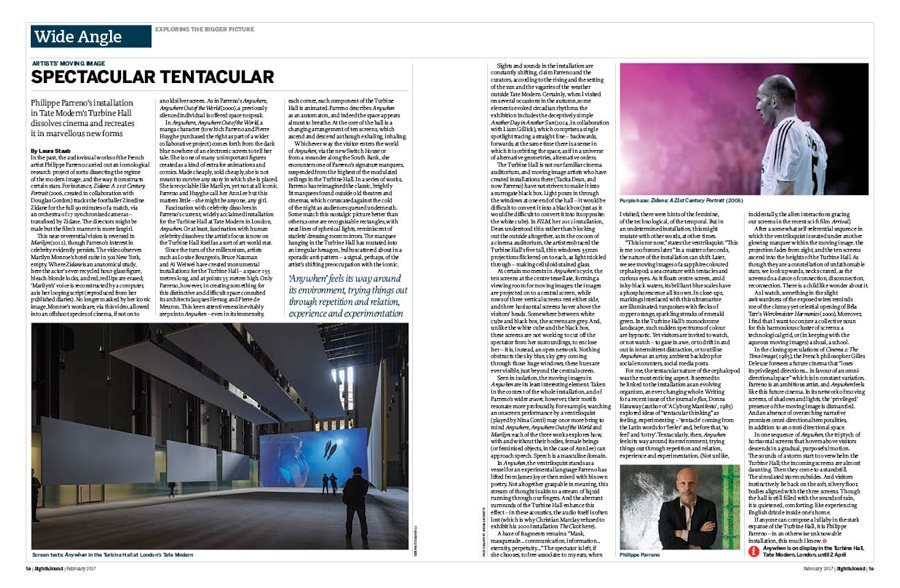
Our Wide Angle section
Artists’ moving image: Spectacular tentacular
Philippe Parreno’s installation in Tate Modern’s Turbine Hall dissolves cinema and recreates it in marvellous new forms. By Laura Staab.
Soundings: Warp factor
They say a good film score is one you don’t notice, but Mica Levi’s score for Pablo Larraín’s Jackie doesn’t give you that option. By Sam Davies.
Primal screen: The world of silent cinema
Stage and film comedies have distorted our view of the early days of cinema – but some of them are terrific. By Bryony Dixon.
Profile: Melting pot
The films of Rita Azevedo Gomes, filled with layers, paradoxes and poetry, reinforce a conception of cinema built on friendship. By Cristina Álvarez López and Adrian Martin.
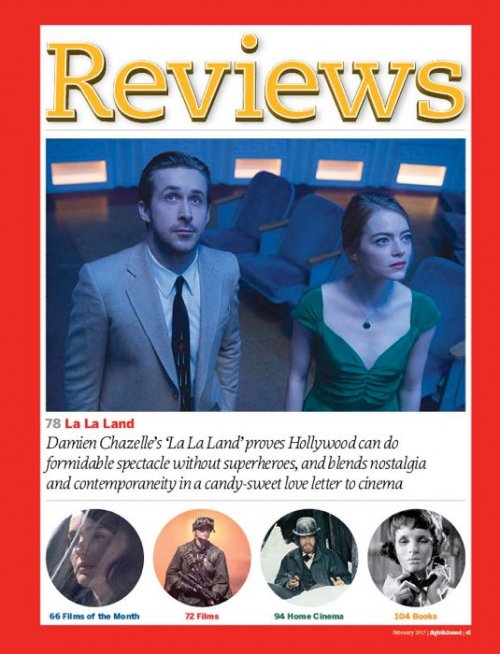
Our Reviews section
Reviews
Films of the month
Christine
Jackie
Starless Dreams
plus reviews of
Cameraperson
Collateral Beauty
Crash & Burn
Danny Says
Denial
Gold
Hacksaw Ridge
Holy Cow
Irreplaceable
La La Land
Lion
Loving
Manchester by the Sea
Moana
Molly Moon and the Incredible Book of Hypnotism
A Monster Calls
Monster Trucks
Office Christmas Party
Passengers
Rogue One
Silence
Sing
Through the Wall
The Weekend
The White King
Why Him?
The Young Offenders
Home Cinema features
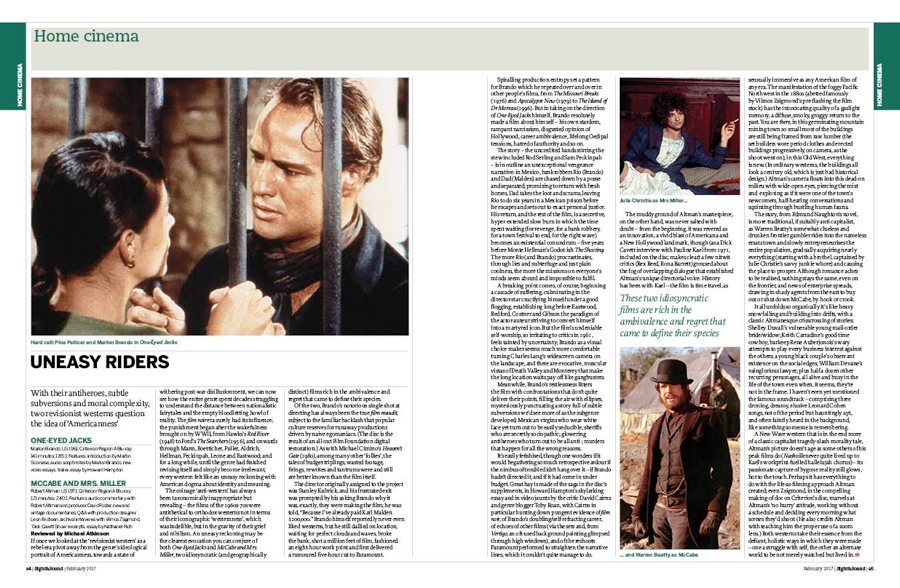
Our Home Cinema section
Uneasy riders: One-Eyed Jacks and McCabe and Mrs. Miller
With their antiheroes, subtle subversions and moral complexity, two revisionist westerns question the idea of ‘Americanness’. By Michael Atkinson.
Once upon a time in the east: Three Wishes for Cinderella
This proto-feminist take on the fairytale favourite offers a feisty cross-dressing heroine and a spoonful of sweetened socialism. By Pamela Hutchinson.
The Magic Box: The Films of Shirley Clarke
A collection of home movies, films and unfinished fragments celebrates one of the unsung greats of American independent cinema. By Michael Brooke.
Lost and found: Hard Contract
The title promises action – but this hitman tale unexpectedly turns into a heady talk-fest about love, mortality and commitment. By Tim Lucas.
plus reviews of
The Blue Lamp
Burnt Offerings
Children of Divorce
Every Thing Will Be Fine
The Asphalt Jungle/Moby Dick
The Man Between
The Man Who Fell to Earth
Pretty Poison
Private Property
Women in Love
Television
I Didn’t Know You Cared
The Troubleshooters – Mogul
Books
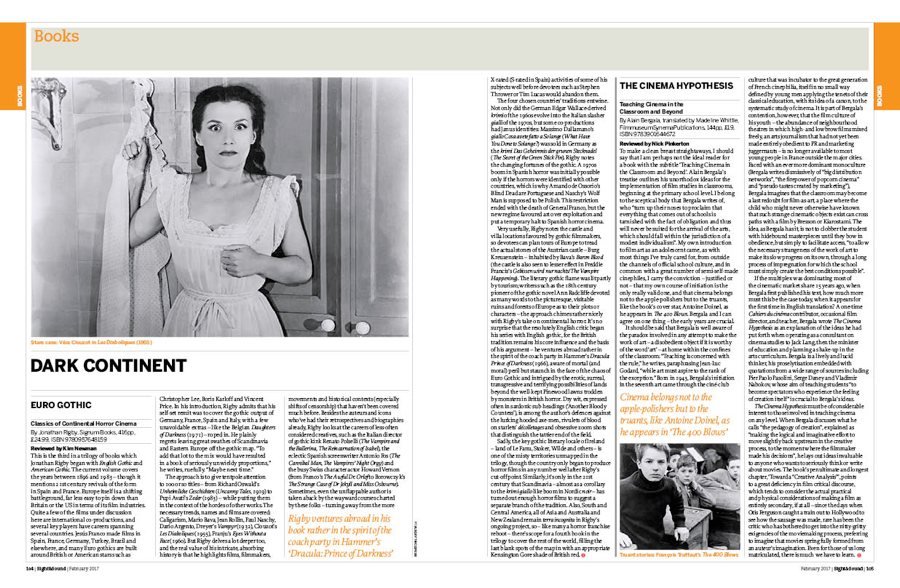
Euro Gothic: Classics of Continental Horror Cinema by Jonathan Rigby (Signum Books) reviewed by Kim Newman
The Cinema Hypothesis: Teaching Cinema in the Classroom and Beyond by Alain Bergala, translated by Madeline Whittle (FilmmuseumSynemaPublications) reviewed by Nick Pinkerton
King of Jazz: Paul Whiteman’s Technicolor Revue by James Layton and David Pierce (Media History Press) reviewed by David Robinson
Letters
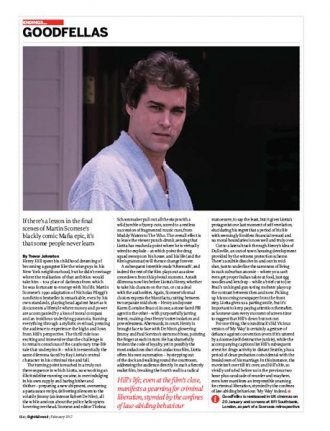
Our Endings section
Arrival’s departure from its source novel
The Girl on the Train’s lack of departure from its source novel
Our films of the year: wot no savage satire?
Two against Nate Parker
Television credits’ debt to theatre
Jamaica Inn is another country
Endings
Goodfellas
If there’s a lesson in the final scenes of Martin Scorsese’s blackly comic Mafia epic, it’s that some people never learn. By Trevor Johnston.
Further reading
-
The Digital Edition and Archive quick link
Log in here to your digital edition and archive subscription, take a look at the packages on offer and buy a subscription.




